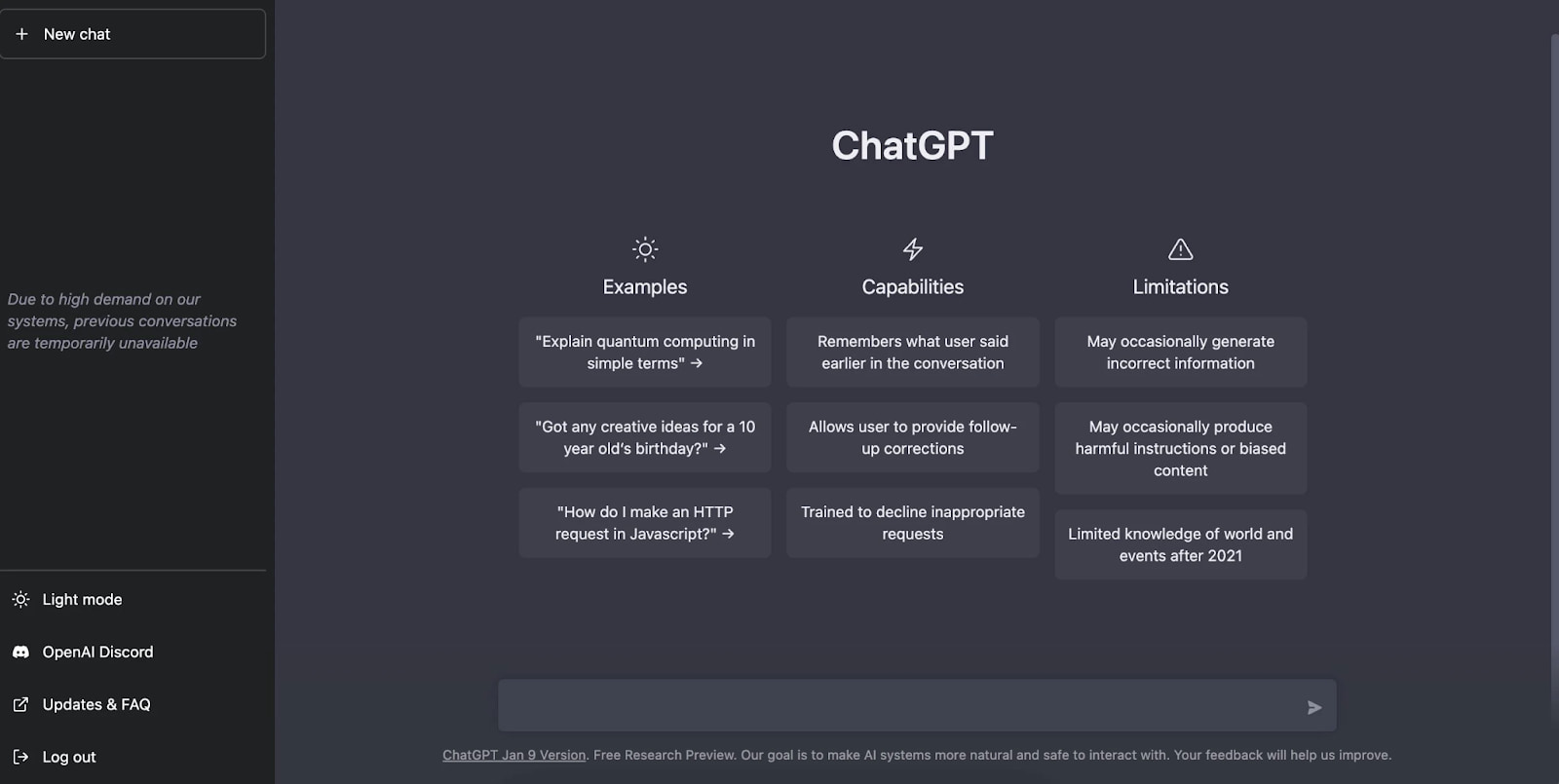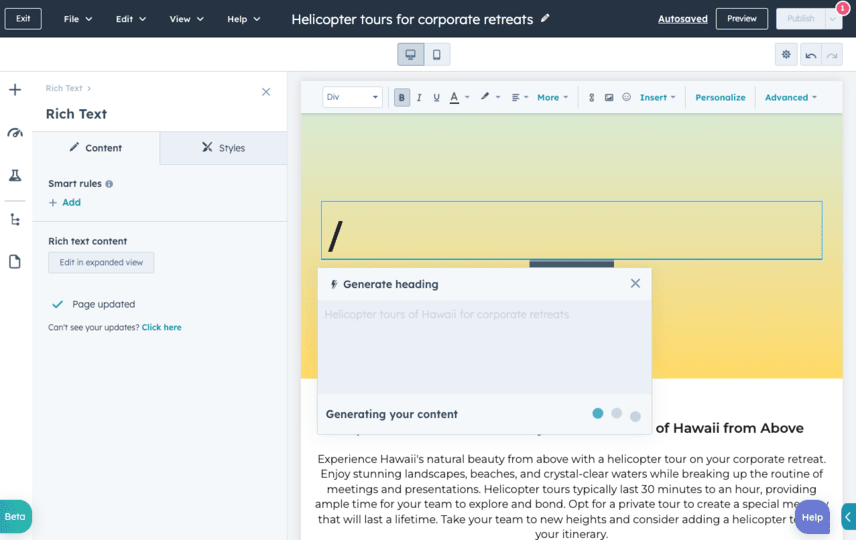Net design has come a great distance since 1991, when the first ever web site was revealed. Completely text-based, this website marked the start of what would develop into a digital revolution.

And whereas recollections of “beneath development” GIFs and blinding background colours make me grateful for simply how far the net has come, there are some historic net design selections that truly demand a nod of respect.
Web sites like this one haven’t been misplaced to time, both. If you wish to see what a web site seemed like at any interval since its launch, enter its area title into the Wayback Machine and select a date. On this publish, let’s check out how net design has developed, from text-only interfaces up by the smooth, fashionable designs we see at the moment.
Early Nineteen Nineties: Antiquity
The early 90s marks the beginning of our web site design timeline. At this level, there was no such factor as a high-speed web connection. It was dial-up modems, or it was nothing. Due to this fact, web sites wanted to be constructed for less-than-stellar connection speeds. They principally seemed like partitions of textual content — what we now take with no consideration as “design format” didn’t exist.
-1.jpeg?width=650&name=history%20of%20web%20design%20(update)-1.jpeg)
Whereas later variations of HTML allowed for extra advanced designs, they had been nonetheless very fundamental in comparison with at the moment, consisting primarily of tags for headers, paragraphs, and hyperlinks. Visible parts and styling like typography, imagery, and navigation had been issues of the not-too distant future.
Takeaways for In the present day’s Web sites:
Whereas the operate of those early websites was purely informational, we will see some design parts that apply at the moment. These previous net pages had been very light-weight and optimized for a gradual web connection all of us nonetheless expertise occasionally. These design concerns took the consumer expertise into consideration, one thing at the moment’s web sites do not all the time do, even with quicker speeds.
Sure, at the moment’s web can deal with media-rich web sites … however it nonetheless has some limits. Massive media information, heavy graphic design, and extreme animations can all contribute to increased bounce charges when load speeds aren’t as quick as we wish. Preserve your consumer in thoughts when contemplating sophisticated design, and keep in mind to Ok.I.S.S. (Preserve It Easy, Superhero).
Mid-Nineteen Nineties: The Center Ages
The center ages of net design had been tormented by on-site web page builders and spacer GIFs. (Higher than an precise plague although, proper?) By the mid-90s, net design had developed each when it comes to construction and look. Designers started utilizing table-based layouts to prepare content material, permitting for larger flexibility and creativity. Websites had been nonetheless fairly textual content heavy, however textual content might now be divided into columns, rows, and different navigational parts for higher readability.
Graphical design parts additionally shortly grew in reputation. Web page hit counters, animated textual content, and dancing GIFs are only a few of the graphical parts that mark this era in net design.
-Mar-23-2022-09-25-43-49-PM.jpeg?width=650&name=history%20of%20web%20design%20(update)-Mar-23-2022-09-25-43-49-PM.jpeg)
Takeaways for In the present day’s Web sites:
In the present day, there are many the explanation why table-based design shouldn’t be the only option to your web site — the in depth markup, gradual load instances, and visible inconsistency are only a few of the pitfalls.
Regardless, this growth was key within the evolution of net design: It was the primary transfer towards non-linear web page construction. Totally different parts might now be positioned in numerous sections of an internet web page, and designers needed to take into account one of the simplest ways to current data to the consumer.
Web page construction stays essential when enthusiastic about navigation and content material. It largely determines how the consumer experiences and interacts together with your website. Whereas these concerns won’t have been on the forefront in the course of the center ages of net design, they’re definitely on the forefront at the moment.
Late Nineteen Nineties: The Renaissance
Renaissance. Rebirth. Net design has had its fair proportion of reimaginings, however one of many first occurred with the introduction of Flash. Launched in 1996, Flash opened up a world of design prospects that weren’t attainable with fundamental HTML. It was the wedding of digital graphics and interplay.
Whereas most of the identical design parts from earlier durations had been nonetheless current, they had been enhanced with animations, tiled background pictures, neon colours, 3D buttons, splash pages, and different multimedia.
Flash marked the start of visitor-focused design — construction and navigation turned vital concerns and designers started to hone in on look and value over pure content material.
-3.jpeg?width=650&name=history%20of%20web%20design%20(update)-3.jpeg)
Takeaways for In the present day’s Web sites:
Flash was a game-changer, however it wouldn’t stick round ceaselessly. Flash is rarely used at the moment and is deemed one of many largest web optimization sins of all time. In the present day, it’s the norm to go for different strategies comparable to CSS and JavaScript animations to get comparable results, or to embed movies from video internet hosting websites.
Early 2000s: The Enlightenment
The early 2000s had been a interval when usability and adaptability actually got here to the forefront of net design.
Main the cost was CSS, a coding language that allowed builders to retailer visible guidelines in information separate from HTML, successfully separating content material and elegance. This gave larger artistic freedom to each net designers and content material builders — content material might now be developed completely from design, and vice versa. CSS made web sites simpler to take care of (much less code and complexity), extra versatile (div tags are unbiased of each other), and faster to load (smaller information).
Higher understanding of colour psychology additionally led to elevated use of whitespace and the lower of garish colours, like neons. Hyperlinks began being added to icons reasonably than simply textual content, decision and pixelation turned extra vital issues, and strategic placement of content material additionally gained traction.
.jpeg?width=650&name=history%20of%20web%20design%20(update).jpeg)
Takeaways for In the present day’s Web sites:
Individuals sometimes scan web sites searching for the data they want, so any website that makes this job simpler will get an enormous check-mark. Savvy net designers know that the majority customers do not learn every little thing on a web site, and perceive how readers soak up data.
Due to this fact, intuitively positioned data, visually accentuated hyperlinks, and easy navigation are only a few finest practices at the moment’s web sites ought to adhere to. At all times design with usability in thoughts!
Mid- to Late-2000s: The Industrial Revolution
The Industrial Revolution of net design begins with the delivery of Net 2.0. It’s presently that issues actually started to maneuver towards the fashionable net. The expansion of multimedia functions, the rise of interactive content material, and the appearance of social media are a number of definitive options of this era.
Furthermore, these adjustments largely dictated the way in which net design was … nicely, accomplished. Aesthetic adjustments included higher colour distribution, elevated use of icons, and larger consideration to typography.
Most significantly, nevertheless, design turned about content material, and content material turned about SEO. With the consumer now firmly on the middle of design, promoting merchandise (at the least explicitly) turned the secondary operate of internet sites — now it was all about getting discovered.
-4.jpeg?width=650&name=history%20of%20web%20design%20(update)-4.jpeg)
Takeaways for In the present day’s Web sites:
As talked about, the evolution of Net 2.0 noticed the expansion of web optimization as a consideration. Whereas these methods have been tailored through the years, enthusiastic about your web site when it comes to web optimization continues to be a high precedence for many thriving enterprise web sites.
web optimization calls for content material, and content material largely turned the main target of net design throughout this period. Key phrase optimization, inbound and outbound linking, authoring, tagging, and syndication expertise comparable to RSS turned pure design parts. Whereas hyperlink spamming and key phrase jamming quickly exploited these methods, these strategies are now not efficient and (I hope) have largely fizzled out.
2010 to Now: The Fashionable Period
In the present day, over 20 years after the publication of the primary web site, net design has firmly established itself as an irreplaceable element of each good advertising and marketing technique. Latest analysis discovered that 50% of at the moment’s shoppers assume web site design is essential to a enterprise’s model.
By way of fashionable aesthetics, now we have seen the proliferation of minimalism: sparse content material, flat graphics (so lengthy, 3D buttons!), easier colour palettes, and massive and daring visuals. As well as, UX has taken middle stage, giving solution to such design options as infinite scrolling and single-page design.
You will have observed that our web site has embraced all these options with its newest design:
-2.jpeg?width=650&name=history%20of%20web%20design%20(update)-2.jpeg)
Yet one more key step within the evolution of net design is the cellular net. For the reason that launch of the iPhone in 2007, there was a re-evaluation of the way in which web sites are structured to accommodate for the rising variety of cellular net customers. This consists of a number of cellular frameworks that take a “mobile-first” method, and an excellent larger give attention to cellular velocity optimization, since telephones normally lack the processing velocity or connection power of your typical desktop.
This digital revolution has additionally given rise to responsive design, during which web page parts mechanically alter to the width of the shopping window, permitting web sites to look good on any gadget or display. In the present day, responsive design is critical to make sure a satisfying cellular consumer expertise, given over half of world web site visitors comes from cellular gadgets.
AI and the Way forward for Web site Design
If there’s one issue that has knowledgeable each single one in every of these developments, it’s content material. Each design aspect right here has been tailored in such a solution to deliver probably the most related content material to the consumer effectively and successfully. Notions of accessibility, adaptability, and value actually outline this period of net design.
The subsequent huge revolution in web site design is undoubtedly AI. AI web sites take the responsive design of the fashionable period and switch it into a totally interactive expertise.
The most important instance, maybe, is ChatGPT. After logging in, you might be met with a easy search bar, much like Google’s, with strategies on the right way to make the very best use of the instrument.
 You need to use AI instruments to construct and optimize web sites quicker than ever earlier than. This is an instance of HubSpot’s free content material assistant AI copywriter.
You need to use AI instruments to construct and optimize web sites quicker than ever earlier than. This is an instance of HubSpot’s free content material assistant AI copywriter.
With how environment friendly AI already is, the probabilities of web site design shifting ahead are limitless.
Reflecting on the Evolution of Web site Design
Although there’s way more we will do with net design at the moment, it is enjoyable to have a look again at the place we got here from. how net design has progressed so far, it is thrilling to consider the place it will likely be within the subsequent 20 years.
Editor’s notice: This publish was initially revealed in July 2013 and has been up to date for comprehensiveness.




